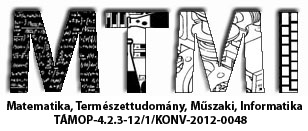Bone metabolism and FRAX-related fracture probability in men over 50 years of age with Type 2 Diabetes Mellitus.
Előadás adatai
Objectives: To evaluate 10-year probability of hip fracture and a major osteoporotic fracture using the FRAX algorithm, vitamin D status, bone mineral density (BMD) and biochemical markers of bone turnover in men over 50 years of age with type 2 diabetes (T2DM).
Methods: We compared FRAX-predicted 10-year fracture probability, levels of 25-hydroxyvitamin D (25-OH-D), markers of bone turnover and bone mineral density at L1–L4 (LS) and femur neck (FN) in 68 men with T2DM, with an age- and gender-matched group (n=68).
Results: The mean (range) age of the T2DM group was 61.4 (51-78) years. The prevalence of hypovitaminosis D (25-OH-D <75 nmol/L) was 59%. The mean (range) FRAX hip fracture and FRAX major osteoporotic fracture was 0.7 (0-2.8)% and 3.2 (0-8.5)%, respectively. BMD at the FN (0.974 gm/cm² vs. 0.915 gm/cm²; p = 0.008) and LS (1.221 gm/cm² vs. 1.068 gm/cm²; p < 0.001) was significantly higher in the T2DM cohort as compared to the healthy age matched males. 25-OH-vitamin D (67.7 nmol/L vs.79.8 nmol/L; p < 0.001), crosslaps (0.19 μg/L vs. 0.24 μg/L; p = 0.004) and osteocalcin (13.3 μg/L vs. 15.7 μg/L; p = 0.004) were significantly lower in the T2DM group. There was no difference in FRAX-related fracture probability between the two groups.
Conclusion: The increased BMD in T2DM and the lack of inclusion of T2DM as a risk factor in the FRAX algorithm are probable explanations for the discordance between literature-observed and FRAX-related fracture probabilities.
Támogatók: Támogatók: Az NTP-TDK-14-0007 számú, A Debreceni Egyetem ÁOK TDK tevékenység népszerűsítése helyi konferencia keretében, az NTP-TDK-14-0006 számú, A Debreceni Egyetem Népegészségügyi Karán folyó Tudományos Diákköri kutatások támogatása, NTP-HHTDK-15-0011-es A Debreceni Egyetem ÁOK TDK tevékenység népszerűsítése 2016. évi helyi konferencia keretében, valamint a NTP-HHTDK-15-0057-es számú, A Debreceni Egyetem Népegészségügyi Karán folyó Tudományos Diákköri kutatások támogatása című pályázatokhoz kapcsolódóan az Emberi Erőforrás Támogatáskezelő, az Emberi Erőforrások Minisztériuma, az Oktatáskutató és Fejlesztő Intézet és a Nemzeti Tehetség Program



